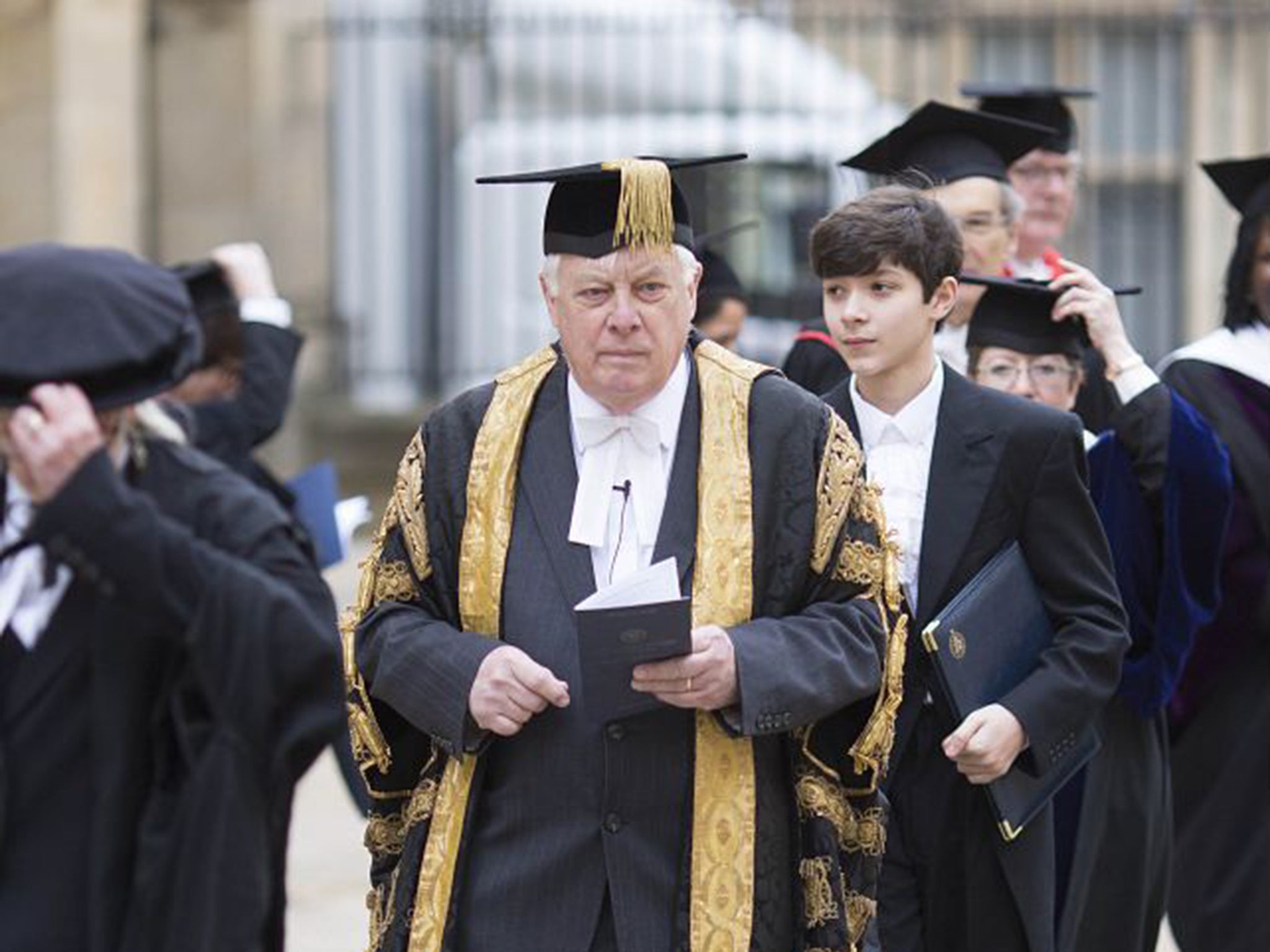Lords revolt over Government reforms to 'turn university world upside down'
Lords warn the new Higher Education and Research Bill could allow private companies to run institutions as businesses, driving a ‘marketisation’ of the sector

Your support helps us to tell the story
From reproductive rights to climate change to Big Tech, The Independent is on the ground when the story is developing. Whether it's investigating the financials of Elon Musk's pro-Trump PAC or producing our latest documentary, 'The A Word', which shines a light on the American women fighting for reproductive rights, we know how important it is to parse out the facts from the messaging.
At such a critical moment in US history, we need reporters on the ground. Your donation allows us to keep sending journalists to speak to both sides of the story.
The Independent is trusted by Americans across the entire political spectrum. And unlike many other quality news outlets, we choose not to lock Americans out of our reporting and analysis with paywalls. We believe quality journalism should be available to everyone, paid for by those who can afford it.
Your support makes all the difference.The Government is facing a cross-party revolt over controversial reforms to higher education that make it easier for new institutions to be awarded “university” status.
Labour, Liberal Democrats and crossbench peers in the House of Lords have combined forces in an attempt to stop the Higher Education and Research Bill going through in its current form, stressing the move could lower standards and damage the reputation of British education.
Instead, the group has proposed a series of amendments they say would prevent providers from using institutions to make a profit, as well as underline universities’ right to criticise the Government and work autonomously.
Writing for The Observer, Lord Chris Patten, former Conservative minister and present chancellor of Oxford University, condemned the Government’s “ham-fisted” reforms, warning that ministers have little knowledge of the university system.
He said: “To give the impression that one goal is to inject a shot of entrepreneurial vim, so that universities can replicate the energy and outlook of – who shall we say, Philip Green? – seems unlikely to convince those who work in and study at our universities that ministers understand and care much about what they are doing.”
The backlash comes as the bill begins its committee stage in the House of Lords next week, with Tory members expected to join in voting against the planned reforms.
Labour’s shadow higher education minister Lord Stevenson also told the newspaper: “This bill is an attempt from the Government to run a market experiment through the bloodstream of our university system, and a classic case of understanding the cost of everything and the value of nothing.
“There is far more to higher education than financial transactions and bottom lines, including the ongoing contribution made to society and business through the application of new knowledge and expertise.
“Our amendment calls on ministers to recognise all of this and enshrine in law the principles of academic freedom and freedom of speech, alongside protecting the sector’s ability to act as society’s conscience.”
Government ministers say the bill is designed to widen choice for students and deliver value for money in line with tuition fees.
The bill would also allow a new Office for Students more power over traditional university hierarchies, a move Lord Patten said would give the ability to strip older universities of their ancient royal charters.
“Worst of all is the power given to the Office for Students to revoke the acts of parliament or royal charters that have established our universities. How can it be right to allow institutions, some of very ancient standing, to be abolished with only weak parliamentary scrutiny? Did Thomas Cromwell write this part of the bill?”
He added: “In this country, we ought to understand the independence of universities as an integral part of a delicate system that has produced brilliant academic success and a huge British export on a shoestring budget.
“It seems particularly ham-fisted to turn the academic world upside down when universities face so much turbulence and uncertainty after the Brexit vote and the rhetoric surrounding immigration.”
A Department for Education spokesperson said: “We want more young people to have the opportunity to access a high-quality university education, and the measures proposed in the higher education and research bill are critical to making this possible.
“The bill does not take away the royal charters of any of our higher education institutions. What it does do is protect and enshrine the autonomy and academic freedom of these institutions in law. And it puts students at the heart of the system, with the Office for Students making universities rightly more accountable to their students so they get the best value for money.”
Join our commenting forum
Join thought-provoking conversations, follow other Independent readers and see their replies
Comments